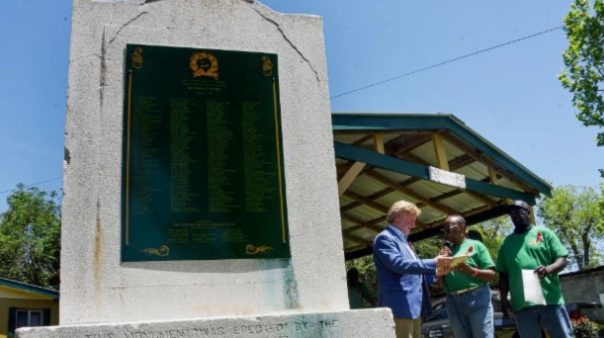Mississippi city honors memories of 209 victims on anniversary of fire
Published 7:45 am Sunday, April 23, 2023
The victims of the April 23, 1940, Rhythm Night Club fire were remembered Saturday at the scene of that tragedy, which today holds a museum dedicated to their memory.
Natchez Mayor Dan Gibson, the keynote speaker for the event, said the 209 people who perished did not die in vain. He said many of today’s modern safety regulations came about because of the Rhythm Night Club fire.
Some think the death toll that night in Natchez was much larger, but only 209 bodies were identified. Many were buried in a mass grave in Watkins Street Cemetery.
“We are standing here and sitting here on sacred ground,” Gibson said. “We are in the midst of Natchez history. Today is such a beautiful testimony of the love in our city and the love that the Sagos have for this site and for those who perished on this site 83 years ago and for their descendants and their family members who are still affected by this tragedy that happened in our city.
“As I stand here I know that I am standing in history as I look at Zion Chapel where the great Hiram Revels was the first minister, who went on to become a city official here in Natchez during reconstruction and to serve our country as the first man of color to ever serve in the United States Congress, either house. He became a senator and took his seat there among other senators in 1871.
“As I look out I see some of the oldest businesses here in Natchez in this historic triangle, which will eventually and we hope very soon will be dedicated to the memory of Hiram Revels,” he said. “As I look beyond here, I see the beautiful church Holy Family where so much history has taken place and the church that has served this community for so many, many years. In fact, a church that oversaw funerals of those who perished on this site in 1940.
“And just down the street across from the church, the John Banks House, which is now our newest historic site in Natchez because just Monday we unveiled the marker there and it is now on the Freedom Trail for the first time — not only the Mississippi Freedom Trail, but now on the United States Civil Rights Trail.
“We are in the heart of history. And what a beautiful time in the history of our city as we celebrate all of our history and tell all of our story because it is our story, and it is unlike the story of anyplace else as we are the oldest municipality in the state of Mississippi. We are the oldest city on this beautiful river, on the highest bluff overlooking the most majestic river on the planet. Thousands upon thousands of people come to Natchez, yet we are the ones blessed to call this our home,” Gibson said.
He thanked Monroe and Betty Sago, who own the site and developed the Rhythm Night Club museum to remember the fire’s victims and the friends and family left behind.
“The Sagos did not have to do this. In fact, like so many other historic sites in our nation, they could easily have come here and built something and moved on with the business. That after all is what has happened in so many respects across our country,” Gibson said.
The commemoration ended with the unveiling of a memorial stone that bears the name of the 209 victims. The memorial was located behind the NAPAC Museum on Main Street. Gibson was instrumental in having it moved to the Rhythm Night Club Museum.





